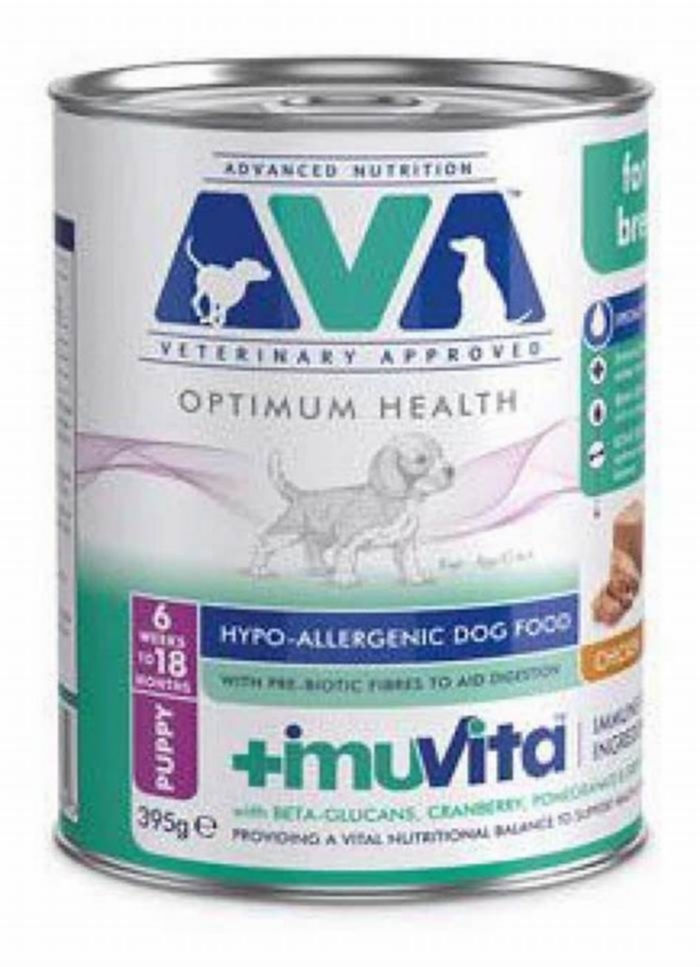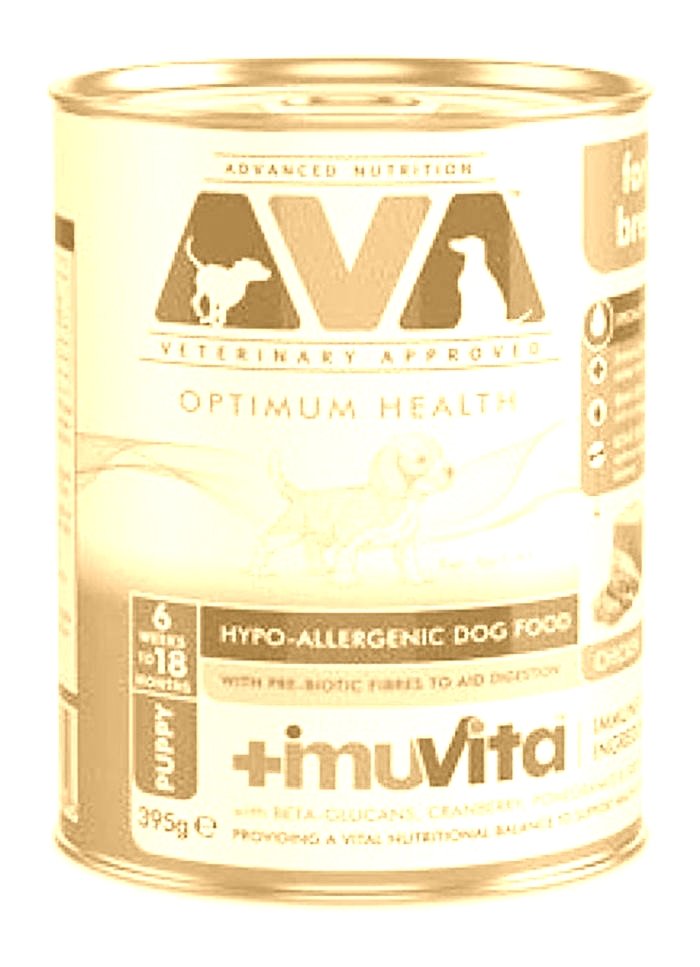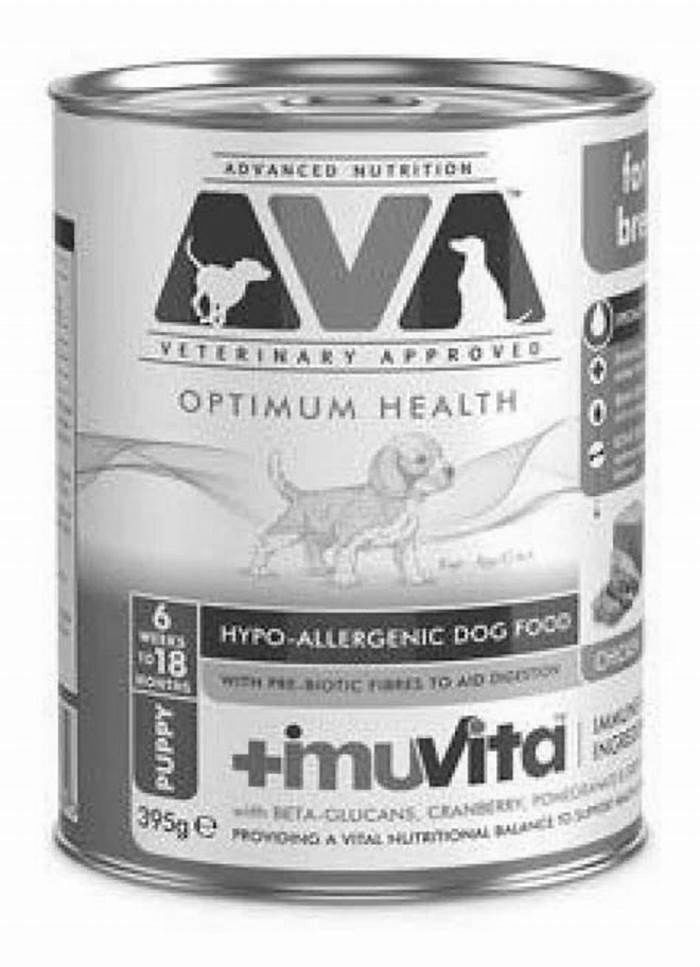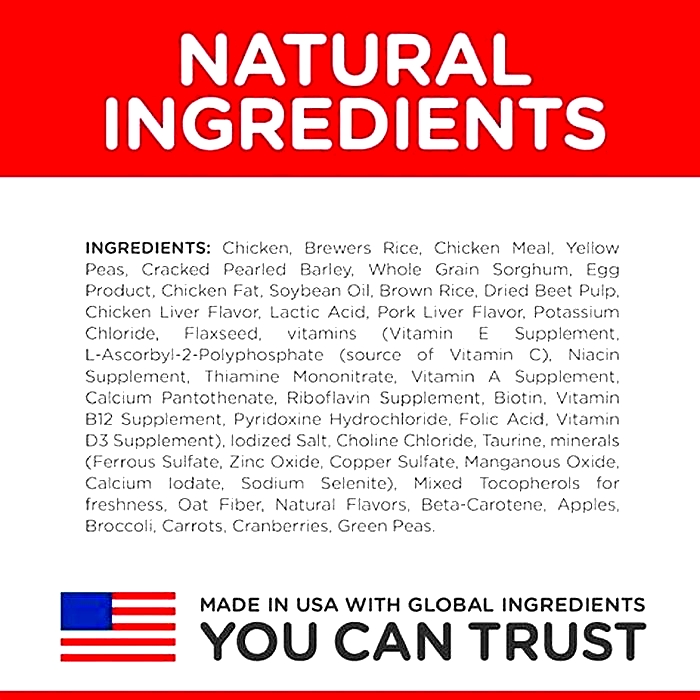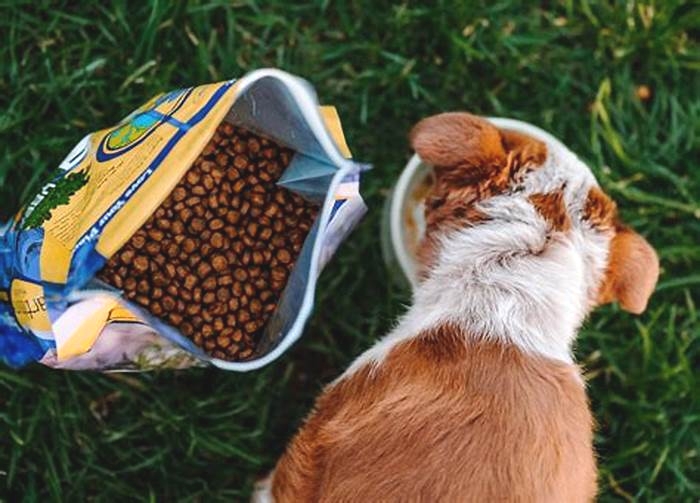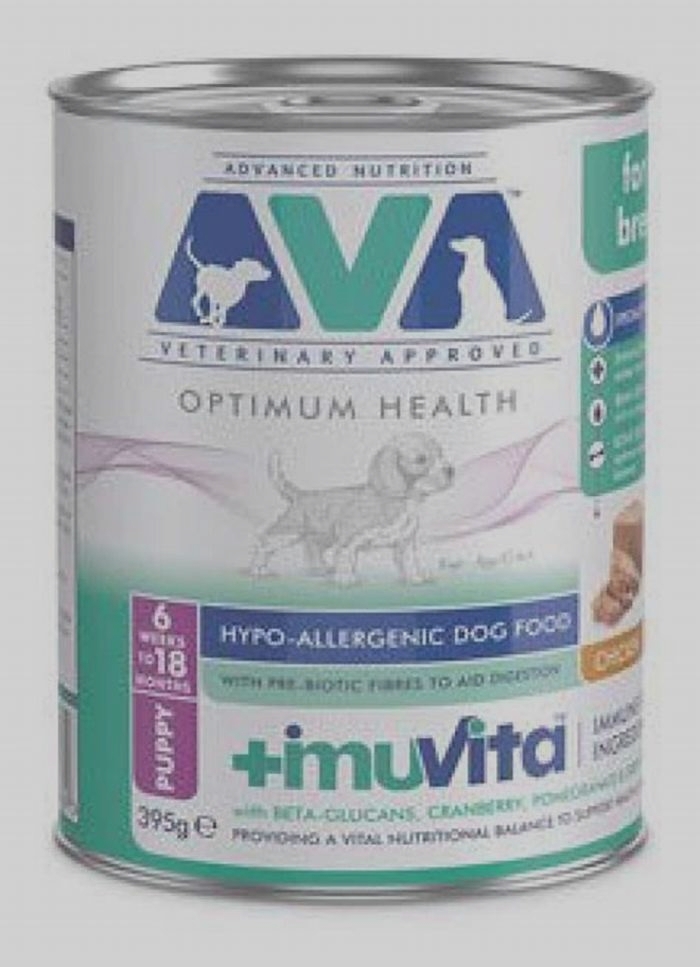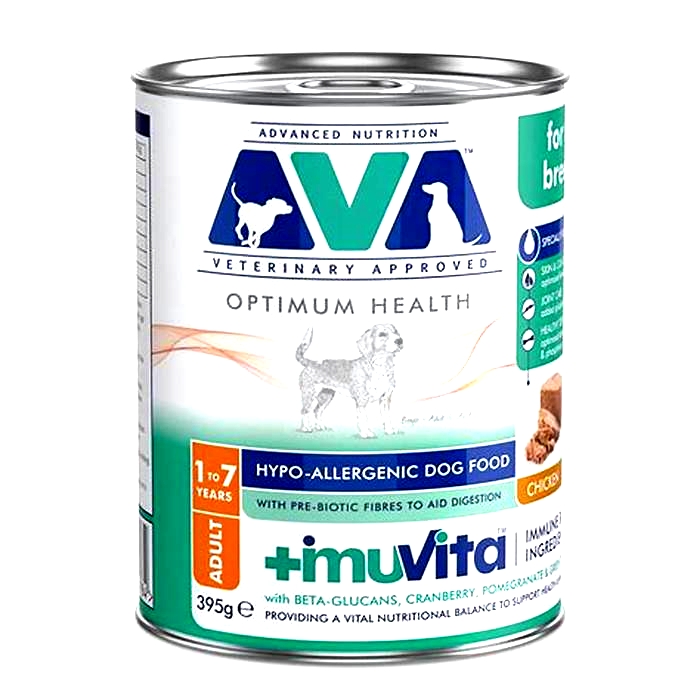Unveiling the Secrets of Science Diet Puppy Nutrition
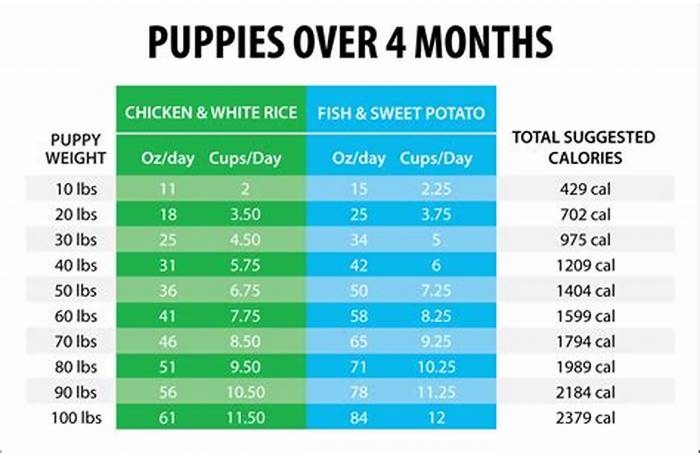
Hill's Science Diet Puppy Small Paws Chicken Meal, Barley & Brown Rice Recipe
INGREDIENTS:Chicken Meal, Whole Grain Wheat, Whole Grain Sorghum, Chicken Fat, Whole Grain Corn, Corn Gluten Meal, Cracked Pearled Barley, Brown Rice, Chicken Liver Flavor, Dried Beet Pulp, Pork Flavor, Flaxseed, Fish Oil, Dicalcium Phosphate, Lactic Acid, Soybean Oil, Potassium Chloride, Iodized Salt, L-Lysine, vitamins (Vitamin E Supplement, L-Ascorbyl-2-Polyphosphate (source of Vitamin C), Niacin Supplement, Thiamine Mononitrate, Vitamin A Supplement, Calcium Pantothenate, Riboflavin Supplement, Vitamin B12 Supplement, Pyridoxine Hydrochloride, Biotin, Folic Acid, Vitamin D3 Supplement), Choline Chloride, L-Threonine, minerals (Ferrous Sulfate, Zinc Oxide, Copper Sulfate, Manganous Oxide, Calcium Iodate, Sodium Selenite), Calcium Carbonate, Taurine, Mixed Tocopherols for freshness, Natural Flavors, Green Peas, Apples, Cranberries, Carrots, Beta-Carotene, Broccoli.
Hill's Science Diet Puppy Small Bites Chicken & Barley Recipe Dog Food
INGREDIENTS:Chicken Meal, Whole Grain Wheat, Cracked Pearled Barley, Whole Grain Sorghum, Whole Grain Corn, Chicken Fat, Corn Gluten Meal, Chicken Liver Flavor, Dried Beet Pulp, Pork Liver Flavor, Fish Oil, Flaxseed, Lactic Acid, Soybean Oil, Dicalcium Phosphate, Iodized Salt, Potassium Chloride, Choline Chloride, vitamins (Vitamin E Supplement, L-Ascorbyl-2-Polyphosphate (source of Vitamin C), Niacin Supplement, Thiamine Mononitrate, Vitamin A Supplement, Calcium Pantothenate, Riboflavin Supplement, Biotin, Vitamin B12 Supplement, Pyridoxine Hydrochloride, Folic Acid, Vitamin D3 Supplement), minerals (Ferrous Sulfate, Zinc Oxide, Copper Sulfate, Manganous Oxide, Calcium Iodate, Sodium Selenite), Taurine, Oat Fiber, Mixed Tocopherols for freshness, Natural Flavors, Beta-Carotene, Apples, Broccoli, Carrots, Cranberries, Green Peas.
Unveiling the Truth: Why Vets Swear by Science Diet
Welcome, pet lovers and curious minds! Today, were diving into a topic thats as intriguing as it is important: Why Do Vets Recommend Science Diet? If youve ever found yourself wandering the aisles of pet food, pondering this very question, youre in the right place.
The Science Behind the Diet
First things first, lets talk about what sets Science Diet apart. Its not just another bag on the shelf; its a result of meticulous research and development. Science Diet is formulated based on the science of pet nutrition, aiming to provide precisely balanced meals that cater to the specific needs of pets at different life stages, breeds, and health conditions.
Pros: The Good Stuff
| Pros | Why It Matters |
|---|---|
| Scientifically Formulated | Tailored nutrition ensures your pet gets exactly what they need for their age, size, and health condition. |
| Veterinarian Recommended | Vets trust it, often because theyve seen positive outcomes in the animals they care for. |
| Quality Ingredients | High-quality, with no artificial colors, flavors, or preservatives. |
| Specialized Options | Offers solutions for various health issues, like skin sensitivities, weight management, and digestive care. |
Cons: The Not-So-Good Stuff
| Cons | Why It Might Concern You |
|---|---|
| Price Point | Higher than average, which might not fit everyones budget. |
| Availability | Might not be as readily available in all stores, leading to inconvenience. |
| Taste Preference | Some pets might not find it as palatable as other brands. |
Why Vets Recommend It: Unpacking the Trust
The crux of the matter is, vets recommend Science Diet because theyve seen it work. Its the peace of mind that comes with feeding your pet a diet thats not just filler but fuel for their health. The company collaborates closely with veterinarians, pet nutritionists, and food scientists to develop diets that support your pets health and longevity.
Did You Know?
Science Diet isnt just a name; its a promise. The brand invests in clinical studies and ongoing research to refine and validate their formulas. This dedication to science and health is why many vets feel confident recommending it to pet parents.
Critical Insight: The Flip Side
However, its crucial to remember that every pet is an individual. What works wonders for one may not suit another. The best approach is a balanced one, taking into account your pets specific needs, preferences, and any medical advice from your vet.
Final Thoughts: To Feed or Not to Feed?
In conclusion, Science Diet stands out in the crowded pet food market for valid reasons. Its science-backed approach to pet nutrition offers a level of assurance that youre doing right by your furry friend. However, its essential to weigh the pros and cons, considering your pets unique needs and your budget.
Before making any changes to your pets diet, have a chat with your vet. Theyre your best resource for personalized advice, ensuring your pet stays happy, healthy, and wagging.
There you have it, folks! A deep dive into the whys and whats of Science Diet from a lens thats both critical and appreciative. Remember, the goal is always the wellbeing of our four-legged family members.
A Candid Chat with a Vet about Science Diet
Q: Lets dive right in. Theres a lot of buzz around Science Diet. In your experience, why is it often the go-to recommendation for pets?
A: Absolutely, its a hot topic! The buzz isnt just noise; its rooted in the diets comprehensive approach to pet nutrition. Science Diet isnt a one-size-fits-all; its like a bespoke suit for your pet. The brand invests heavily in research to tailor their formulas to the nuanced needs of pets at different life stages, health conditions, and even breeds. Its this precision nutrition that makes it a standout, ensuring pets get exactly what they need to thrive, not just survive.
Q: With pet parents being more conscious about ingredients, how does Science Diet ensure quality and safety?
A: Great question! The commitment to quality starts at the source. Science Diet uses high-quality ingredients that undergo rigorous quality control processes. But its not just about the ingredients; its how theyre combined. Their formulas are crafted to enhance the bioavailability of key nutrients, ensuring pets can easily absorb and benefit from them. Plus, with strict safety protocols in place, from sourcing to production, it gives pet parents a peace of mind thats hard to beat.
Q: Theres often debate about the price point of Science Diet. Can you share your perspective on its value?
A: Yes, the price point is a common discussion. When we talk about Science Diet, were talking about an investment in your pets health. Its akin to choosing a premium fuel for a high-performance vehicle. The higher cost reflects the extensive research, quality ingredients, and stringent safety standards. Its not just food; its a health plan on a plate. Over time, feeding your pet a diet thats scientifically formulated to meet their needs can result in fewer vet visits and a longer, healthier life, which is invaluable.
Q: Some pets may turn their noses up at Science Diet. How do you navigate this challenge?
A: Indeed, the palatability can vary from pet to pet. However, Science Diet has made strides in enhancing the taste without compromising nutritional value. They offer a variety of flavors and textures to suit even the pickiest eaters. Sometimes, its about trial and error, finding the right formula that tickles their taste buds. I also advise a gradual transition, mixing it with their current food and slowly increasing the proportion. Its like introducing a new cuisine; give them time to adjust.
Q: Lastly, for pet parents sitting on the fence about Science Diet, whats your take-home message?
A: My advice? Keep an open mind and consider the long-term benefits. Science Diet is more than just a meal; its a commitment to your pets health and well-being. Each formula is backed by science, aiming not just for survival but for optimal health. Talk to your vet, consider your pets unique needs, and maybe give it a try. The goal is a happy, healthy life for your furry friend, and Science Diet is one pathway to help achieve that.
HELP US PUT FOOD ON THE TABLE
Puppy Large Breed Chicken & Brown Rice Recipe
INGREDIENTS:Chicken, Brown Rice, Whole Grain Oats, Chicken Meal, Cracked Pearled Barley, Chicken Fat, Pea Protein, Brewers Rice, Whole Grain Wheat, Soybean Meal, Whole Grain Corn, Chicken Liver Flavor, Ground Pecan Shells, Lactic Acid, Pork Liver Flavor, Dicalcium Phosphate, Flaxseed, Dried Beet Pulp, Fish Oil, Iodized Salt, Dried Citrus Pulp, Potassium Chloride, Choline Chloride, Pressed Cranberries, Calcium Carbonate, vitamins (Vitamin E Supplement, L-Ascorbyl-2-Polyphosphate (source of Vitamin C), Niacin Supplement, Thiamine Mononitrate, Vitamin A Supplement, Calcium Pantothenate, Riboflavin Supplement, Biotin, Vitamin B12 Supplement, Pyridoxine Hydrochloride, Folic Acid, Vitamin D3 Supplement), DL-Methionine, L-Threonine, Taurine, minerals (Ferrous Sulfate, Zinc Oxide, Copper Sulfate, Manganous Oxide, Calcium Iodate, Sodium Selenite), L-Tryptophan, Mixed Tocopherols for freshness, Natural Flavors, L-Carnitine, Beta-Carotene.
A Complete Guide to German Shepherd Nutrition
Are you giving your German Shepherd the best nutrition for optimal health and vitality? Just like us, our canine companions need a balanced and nourishing diet to thrive. As responsible pet owners, its crucial to understand the unique nutritional requirements of German Shepherds, one of the most popular dog breeds known for their intelligence, loyalty, and athleticism.
In this blog post, we will delve into the world of German Shepherd nutrition and explore how the right diet can make a significant difference in their overall well-being. Well cover everything from understanding their nutritional needs to choosing the right food and tailoring their diet to different life stages. For more in-depth information and guidance, we recommend referring to our comprehensive article, the Complete Guide to German Shepherd Care.
German Shepherd Nutrition, the key to their vitality and longevity, involves more than just filling their bowls. By providing them with the right balance of nutrients, we can ensure they have the energy to chase their favorite toys, maintain healthy coats, and support their strong muscles and bones.
Throughout this blog post, we will address common questions, debunk myths, and provide practical tips to help you make informed decisions about your German Shepherds diet. Lets embark on this journey to optimize their nutrition and unlock their full potential.
Next up, in Section 1: Understanding German Shepherd Nutrition, well explore the core elements that contribute to a healthy diet for your German Shepherd. From protein requirements to essential nutrients, well equip you with the knowledge to make informed choices when it comes to their daily meals.
Understanding German Shepherd Nutrition

Fueling Their Potential: Unveiling the Key Elements of German Shepherd Nutrition
German Shepherds are remarkable dogs known for their athleticism, intelligence, and unwavering loyalty. To support their active lifestyle and ensure their well-being, understanding their unique nutritional needs is essential. In this section, we will explore the core elements of German Shepherd nutrition, shedding light on what fuels their potential.
- Protein Powerhouse: One of the fundamental aspects of German Shepherd nutrition is adequate protein intake. These canines have a higher protein requirement than many other breeds due to their active nature and lean muscle mass. High-quality animal-based proteins, such as chicken, beef, or fish, provide the essential amino acids necessary for growth, repair, and overall health. Opting for premium dog food that lists a quality protein source as the primary ingredient can be a solid foundation for meeting this need.
- Essential Nutrients: German Shepherds require a well-rounded mix of essential nutrients to thrive. Key nutrients include carbohydrates for energy, healthy fats for coat and skin health, vitamins for proper cellular function, and minerals like calcium and phosphorus for strong bones and teeth. Providing a balanced diet that incorporates a variety of whole food sources can help ensure your German Shepherd receives all the necessary nutrients.
- Portion Control and Feeding Frequency: Maintaining a healthy weight is vital for your German Shepherds overall well-being. Controlling portion sizes based on their age, activity level, and metabolism is crucial. Overfeeding can lead to weight gain and potential health issues, while underfeeding may deprive them of essential nutrients. Consulting with your veterinarian and following feeding guidelines specific to your dogs breed and life stage can help strike the right balance.
Remember, while understanding the core elements of German Shepherd nutrition is crucial, every dog is unique, and individual dietary needs may vary. Monitoring their weight, energy levels, and overall health will help you fine-tune their diet for optimal results.
By focusing on these key elements and ensuring your German Shepherds nutritional needs are met, you are providing a solid foundation for their growth, vitality, and longevity.
In the next section, Choosing the Right Food for Your German Shepherd, well delve into the different types of dog food available and help you make an informed decision that aligns with your German Shepherds specific needs.
Choosing the Right Food for Your German Shepherd

Tailoring Their Diet: Finding the Perfect Balance for Your Canine Companion
Choosing the right food for your German Shepherd is a crucial aspect of their nutrition journey. With so many options available, its essential to make an informed decision that aligns with their specific needs. In this section, we will explore different types of dog food and help you navigate the selection process to find the perfect balance for your loyal companion.
- Kibble, the Convenient Choice: Kibble, or dry dog food, is a popular and convenient option for many German Shepherd owners. It comes in various formulas tailored to different life stages and specific dietary needs. Look for high-quality kibble that lists animal-based proteins as the primary ingredient, avoids artificial additives, and includes a balance of essential nutrients. The crunchy texture also helps promote dental health by reducing plaque and tartar buildup.
- Canned Food, Moist and Flavorful: Canned dog food provides moisture and a rich taste that many dogs find irresistible. It can be an excellent option for German Shepherds with a picky appetite or those who require additional hydration. When choosing canned food, read the labels carefully and select products with high-quality ingredients, including real meat and limited fillers. Remember to adjust portion sizes accordingly, as canned food tends to be more calorie-dense.
- Raw Diets, Natures Approach: Raw diets, also known as BARF (Biologically Appropriate Raw Food) or PMR (Prey Model Raw), aim to mimic a dogs ancestral diet. These diets typically consist of raw meat, bones, organs, and sometimes fruits and vegetables. Proponents of raw feeding believe it provides a more natural and nutrient-rich option. However, its crucial to educate yourself thoroughly, consult with your veterinarian, and follow proper food handling guidelines to minimize the risk of bacterial contamination.
- Homemade Meals, Personalized with Love: Some German Shepherd owners prefer preparing homemade meals to have complete control over their dogs diet. Homemade meals can offer a high degree of customization, allowing you to select specific ingredients and avoid allergens or fillers. However, its important to ensure a balanced diet by consulting with a veterinary nutritionist or using trusted recipes that follow recommended guidelines.
Remember, regardless of the type of food you choose, always transition gradually to avoid digestive upset. A sudden switch can lead to tummy troubles. Monitor your German Shepherds response to the food, including their digestion, coat condition, and energy levels, to ensure it suits their individual needs.
In the next section, Tailoring Nutrition to Your German Shepherds Life Stages, well delve into how to adjust their diet as they progress through different stages of life, ensuring their nutritional needs are met at every step.
Tailoring Nutrition to Your German Shepherds Life Stages

From Puppies to Seniors: Nourishing Your German Shepherd at Every Stage of Life
Just like humans, German Shepherds go through various life stages, each with unique nutritional requirements. Providing appropriate nutrition during these stages is crucial for their growth, development, and overall well-being. In this section, we will explore how to tailor your German Shepherds nutrition to meet their specific needs throughout their life.
- Puppy Power: Building a Strong Foundation During the puppy stage, your German Shepherd is growing rapidly and requires a diet rich in essential nutrients to support proper development. Look for puppy-specific formulas that provide a balanced mix of high-quality proteins, healthy fats, vitamins, and minerals. These nutrients play a vital role in building strong bones, promoting healthy brain development, and supporting a robust immune system. Feeding guidelines provided by the manufacturer and regular check-ups with your veterinarian will help ensure your puppy is on the right track.
- Adult Years: Maintaining Vitality and Health As your German Shepherd transitions into adulthood, maintaining their vitality and overall health becomes the primary focus. Adult dog food formulated for large breeds or German Shepherds specifically is an excellent choice. The right balance of nutrients, including lean proteins for muscle maintenance, omega-3 fatty acids for a healthy coat, and antioxidants for immune support, is essential. Be mindful of portion sizes to prevent weight gain and monitor their activity levels to adjust calorie intake accordingly.
- Golden Years: Supporting Aging Gracefully As your German Shepherd reaches their senior years, their nutritional needs may change. Aging dogs may require fewer calories and benefit from supplements that support joint health, such as glucosamine and chondroitin. Senior-specific dog food options tailored to the needs of older dogs can provide the right balance of nutrients for maintaining muscle mass, promoting cognitive health, and supporting a healthy immune system. Regular veterinary check-ups can help identify any age-related health issues and guide adjustments to their diet if necessary.
Remember, each German Shepherd is unique, and individual needs may vary. Its essential to monitor their weight, energy levels, and overall health throughout their life stages and make adjustments as needed.
By tailoring your German Shepherds nutrition to their specific life stage, you can ensure they receive the optimal nourishment for their growth, vitality, and longevity..
Continue reading and discover more about German Shepherd care in our comprehensive article, the Complete Guide to German Shepherd Care.
FAQ: Answering Your German Shepherd Nutrition Questions

Unlocking the Secrets to Optimal German Shepherd Nutrition
Here are some common questions about German Shepherd nutrition, answered to help you provide the best care for your furry friend:
What is the ideal diet for a German Shepherd?
The ideal diet for a German Shepherd consists of high-quality dog food formulated for their specific life stage. Look for products that contain real animal-based proteins, balanced nutrients, and avoid fillers or artificial additives. Consulting with your veterinarian can help determine the specific dietary needs of your German Shepherd based on their age, activity level, and any health concerns.
Can I feed my German Shepherd a homemade diet?
Feeding a homemade diet to your German Shepherd is possible, but it requires careful planning and consultation with a veterinary nutritionist. Homemade diets should include a balance of proteins, carbohydrates, healthy fats, and essential vitamins and minerals. Its important to ensure that your homemade meals meet the nutritional requirements of your German Shepherd to prevent deficiencies or imbalances.
How often should I feed my German Shepherd?
Adult German Shepherds are typically fed twice a day, while puppies may require more frequent meals. Follow the feeding guidelines provided by the dog food manufacturer and adjust the portion sizes based on your German Shepherds individual needs, weight, and activity level. Consistency in feeding schedules helps maintain a healthy digestive system.
Are there any foods I should avoid feeding my German Shepherd?
Certain foods can be harmful or toxic to German Shepherds. Avoid feeding them chocolate, grapes, raisins, onions, garlic, caffeine, alcohol, and anything containing xylitol. These substances can cause severe health issues and should be kept away from your German Shepherd at all times.
Can German Shepherds have food allergies?
Yes, like any other dog breed, German Shepherds can develop food allergies. Common allergens include ingredients such as beef, chicken, dairy, wheat, and soy. If you suspect your German Shepherd has food allergies, consult with your veterinarian to determine the best elimination diet or specialized food options.
Remember, if you have specific concerns or questions about your German Shepherds nutrition, its always best to consult with a veterinarian. They can provide personalized advice based on your dogs unique needs and help ensure they receive the best possible nutrition.

Weve explored the essential aspects of German Shepherd nutrition, providing valuable insights to help you nourish your furry friend for a healthy and happy life. Lets recap the key points discussed:
- Understanding German Shepherd Nutrition: We delved into the importance of understanding the nutritional needs of German Shepherds and how it impacts their overall well-being. By referring to the article, the Complete Guide to German Shepherd Care, you can access comprehensive information on German Shepherd nutrition.
- Choosing the Right Food for Your German Shepherd: We explored the factors to consider when selecting the right food for your German Shepherd, emphasizing the importance of high-quality ingredients, balanced nutrients, and tailored formulas for different life stages.
- Tailoring Nutrition to Your German Shepherds Life Stages: We discussed the specific nutritional requirements of German Shepherds during various life stages, from puppies to seniors. Adjusting their diet to meet their evolving needs is crucial for optimal growth, maintenance, and graceful aging.
Additionally, we addressed common FAQs to provide clarity on topics such as ideal diets, homemade meals, feeding schedules, and potential food allergies.
Proper nutrition is just one aspect of caring for your German Shepherd. In our Cross-Promotion section, we explored the importance of exercise and mental stimulation for your German Shepherds overall well-being. Engaging their mind and body is essential for a fulfilled and happy companion.
Remember, each German Shepherd is unique, and its vital to monitor their weight, energy levels, and overall health to ensure they receive the appropriate nutrition. Regular visits to your veterinarian can help you stay on top of your German Shepherds health needs and make any necessary adjustments to their diet.
To dive deeper into the world of German Shepherd care, we invite you to explore the comprehensive article, the Complete Guide to German Shepherd Care. It covers a wide range of topics, including nutrition, training, grooming, and more, providing a wealth of information to help you be the best pet parent to your German Shepherd.
By prioritizing proper nutrition and providing a loving environment, youre setting the stage for a long and joyful companionship with your German Shepherd.
Thank you for joining us on this journey to unlock the power of proper nutrition for your German Shepherd. Stay tuned for more valuable content on our blog, where we continue to provide insights into various aspects of pet care and well-being.

